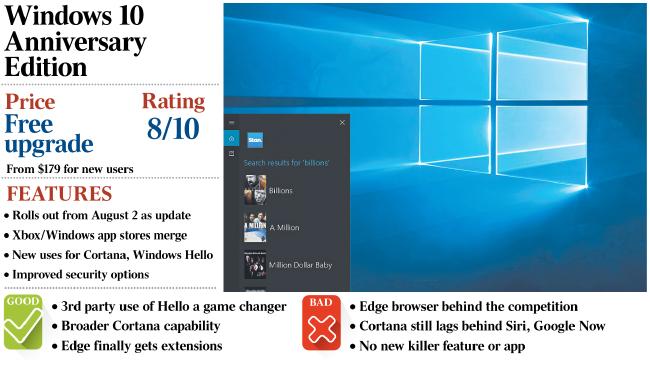
In April of last year, at 10pm on a Wednesday, French network TV5Monde suddenly began to broadcast Islamic State logos and slogans in French, Arabic and English. Simultaneously the broadcaster’s Facebook page began to post inflammatory messages. “Soldiers of France, stay away from the Islamic State!” read one. “You have the chance to save your families, take advantage of it.”
“Je suIS IS,” read another.
But the second message was a lie.
According to security researchers, the culprit was a Russian hacking team long believed by cybersecurity analysts in and outside the US government to be working for the country’s largest intelligence agency, GRU. Fascinated researchers have given it a variety of names: APT 28, Strontium, the Sofacy Group, and Fancy Bear.
Last week, WikiLeaks distributed 20,000 emails from the Democratic National Committee (DNC) obtained after Fancy Bear and another hacking team believed to be tied to a competing Russian intelligence service, known as Cozy Bear, breached the DNC’s internal network. Cozy Bear is believed to have entered the network a year before and waited quietly, gathering information and cataloging emails. Fancy Bear came later. WikiLeaks’ consistent position is not to discuss its source and to push back against suggestions that it gained the data from either Bear.
The Bears have three important things in common: expensive digital tools, suggesting state sponsorship; an interest in pursuing sensitive, embarrassing or strategically significant information, rather than financially beneficial data; and a choice of targets that align with Russian political objectives. Both Bears infiltrated the DNC: Cozy beginning in summer 2015, Fancy in April this year.
Fancy Bear has been known to researchers for seven years, notably in disinformation campaigns in the Caucasian nation of Georgia. Cozy Bear came to prominence last year, when researchers at Kaspersky Lab pinned devastating hacks of the unclassified state department and White House networks on the group.
Senior US government sources are not primarily concerned with WikiLeaks’ role in the affair. Their alarm, shared by cybersecurity researchers, is that a Russian hacking operation they consider tied to the Russian government has taken a step toward attacking an element of the US political apparatus.
Previously the Bears stalked eastern European countries and multinational organizations implicated in Russian national objectives. Now, although attributing responsibility for online breaches is an inferential affair, many in the US government and cybersecurity circles see the Bears in their backyards. And not only are they grabbing data, they are taking the highly unusual step of spreading it, where it can be published to the embarrassment of prominent US politicians.
“Targeting a political campaign, trying to find out everything you can about the next leader of the free world, is fair game for intelligence services, as much as we hate it. That’s a valid intelligence target,” said Toni Gidwani, a former Defense Intelligence Agency (DIA) analyst who is now chief researcher for the cybersecurity firm ThreatConnect.
“Dumping this much information and [leaving] very much the sense that there’s more to come, we have to ask different questions about what the Russian objectives are and what they think is going to happen.”
Neither the DIA nor the FBI, which has an investigation open into the DNC hack, would address whether it assesses Fancy Bear to be an instrument of the Russian intelligence apparatus. Some administration officials are unsure whether the US would make a public accusation against the Russians. But, one said, the administration is coming to the conclusion that Moscow is responsible for the hack, despite foreign minister Sergey Lavrov’s protestations.
The blurred distinction between espionage and attack online has outpaced thinking about deterrence and reprisal, meaning both an intrusion and an accusation carries the risk of escalating beyond tolerable levels. One senior official notes that the executive branch tends to be “highly circumspect” about pointing a finger at Russia.
That escalation risk is heightened because of the mystery surrounding the DNC hack. If it is the Russians, the change represented by making stolen data public raises questions on questions: did something go wrong? Or did Russia mean to push the envelope with its principal geopolitical rival? Or could cybersecurity analysts be wrong, and the ties between the Bears and Russian government objectives be less substantial than they believe?
“The implications of those assessments have some pretty stark recommendations for our leadership, so it is only appropriate to go back and double-check,” said Gidwani. “But by the same token, if everything else looks completely implausible, what’s left is probably what’s happening.”
Patterns of infiltration
Cozy Bear has a sense of humor.
According to Kaspersky, one of its most effective methods of intrusion involved hiding a virus inside a email message that played a Career Builder ad from Super Bowl XL. The ad showed a human office worker trying to tell his colleagues, who are all chimpanzees, to stop wrecking the office.
“These videos are quickly passed around offices with delight while systems are infected in the background silently,” wrote despondent Kaspersky researchers.
A key characteristic of Bear attacks – and high-quality attacks from many seasoned intruders – appears to be its adroit disguise of malicious files. In another operation, a group Kaspersky believes to be Cozy Bear sent “highly relevant and well-crafted content” – such as PDFs about Ukraine possibly joining Nato – to people who would open them and find them interesting without becoming suspicious. Sophisticated users who would spot a “YovTube.com” address or an amateurish website inviting them to type in a login might eagerly open an official-seeming white paper.
Fancy Bear has its own signatures: its identifiable suite of tools has, since 2007 or perhaps even 2004, been updated with the frequency of a software company, according to security firm FireEye. FireEye gave all the tools names – Sourface, Chopstick and Eviltoss, among others – and described them as demonstrating “formal coding practices indicative of methodical, diligent programmers”.
Rather than send its malware broadly, a pattern used by hackers who hope a fraction of their recipients will click on a dubious link, Fancy Bear sends them to specific users, in a pattern Gidwani said indicates reconnaissance on its targets. Microsoft reported that Fancy Bear finds unsuspecting users both by sifting through social media and other online data for associations with its target – say, a LinkedIn page that lists the DNC as an employer – and also by meticulously cataloging the data it has stolen in previous hacks.
“They customize their attack to thrive in that environment,” said Gidwani. “Somebody who could do that has resources, has time and a test environment to try all the stuff out to make sure they’ve got the right package they’re going to deploy. Those are hallmarks of nation-state operations. Criminals are going to hit a million people in the hope that they get a hundred.”
Fancy Bear also favors infected files, in which it usually hides Sourface, the program that creeps on to a target computer and downloads malware allowing that computer to be controlled remotely. A list of “lure” emails compiled by FireEye includes a file named “military cooperation.doc”, a Georgian-language IT document for the ministry of internal affairs, and an offer of work to a journalist from the editor of a fictitious division at Reason magazine.
Cooper Quintin, a security researcher for digital rights activists the Electronic Frontier Foundation, said that when his organization was spoofed by Fancy Bear last year, it was part of an attack on a different target. “Some friends at Google” tipped him off that someone was squatting on electronicfrontierfoundation.org, a domain the company didn’t own then, though now it links to Quintin’s post on the event.
Curious, Quintin used the fake version of his company’s site to peer into the hack. “We pulled down a couple of files and noticed some similarities to an attack that was going on called Operation Pawn Storm.”
Quintin notes that Fancy Bear benefits greatly from general ignorance about digital security: high-quality spearphishing works often, and zero-days are pricey. “Why run [a zero-day] when people still open email attachments?” Quintin asked. “It’s usually associated with criminals but it works for nation-states, too.”
Attribution is tricky, Quintin said – often, patterns only become clear after a team has been completely exposed. But there are ways to make educated guesses.
Even if a user doesn’t fall for the login page trap, Fancy Bear can glean information from the click: the user’s IP address and location, his or her browser type and version, and the target computer’s operating system.
Metadata associated with the malicious code used by Fancy Bear suggests a point of origin. Its language settings are Russian, and the malware FireEye found was overwhelmingly built during the workday in Moscow and St Petersburg.
Information worth more than money
Once either group acquires the credentials it needs for its current operation, it uses flaws in popular software to secretly send data back to its own networks without its targets’ knowledge. These flaws, known as zero-day exploits, are critical tools of any hacking organization, from thieves to spy agencies – by definition, they’re difficult for administrators to defend against. The NSA is fond of them.
Zero-day exploits are not for novice hackers. They are difficult to design and keep stable. Purchasing them on the black market is very expensive. Misused, they can collapse forever when an exploited company notices them and fixes the weakness in its software.
Used effectively, zero-day exploits can be used to steal huge amounts of money. That objective has been a hallmark of other sophisticated state-sponsored hackers. China’s famous Unit 61398 tends to steal intellectual property and information beneficial to economic activity.
But Fancy Bear and Cozy Bear don’t do that.
FireEye notes that Fancy Bear wants to exfiltrate sensitive data by camping out on a network undetected for long periods of time – a network controlled or associated with a political, military, diplomatic, activist or journalistic entity. The team acquires “intelligence that would only be useful to a government”, the firm said. The targets chosen by the Bears suggest the government who would primarily find that intelligence useful is Russia.
Famously, when the Russian military attacked Georgia in 2008, its ground assault was presaged by overloading the servers used by the president, the foreign ministry and the parliament. “Georgia in a lot of ways was one of the real opening shots in how we see Russia using cyber as an instrument of national power, fully integrated with their national objectives,” Gidwani said.
In 2013, employees at the Georgian ministry of internal affairs began receiving “a weaponized Excel file that presented a decoy document containing a list of Georgian drivers’ license numbers”, FireEye researchers wrote. A second example used the name of an actual system administrator as the author of the lure document. A third attack targeted a partnership between the Georgian military and a US defense contractor. Fancy Bear hid Sourface in a list of group members’ birthdays.
Other targets show Bear attacks moving westward – much as Russia’s intervention in Syria, its first beyond its historical frontiers in a generation, followed years of unanswered military boldness against its neighbors.
Also in 2013, Kaspersky noticed a group it called MiniDuke – now believed to be Cozy Bear, as well – sneaking into targets in Hungary, Luxembourg and Belgium. Other targets include prime Russian multilateral adversaries like Nato and the Office of Security Cooperation in Europe. And in July 2015, an infiltration into an email system used by the US military’s joint chiefs of staff led military officials tosuspect Russian culpability; CrowdStrike points a finger at Cozy Bear. Around the same time, Cozy Bear made its way into the DNC’s network.
Doubt as an objective
While the FBI investigates the DNC hack, politics has taken the place of digital forensics.
Democrats have already begun to seize upon the hack to imply, as yet without evidence, that the Russians executed the attack to benefit GOP nominee Donald Trump, who has openly praised the Russian president, Vladimir Putin, something that sets him apart from any other major Republican figure in recent memory.
Cozy Bear infiltrated the DNC months before Trump surprised the political world by winning the nomination; nevertheless, the senior Democrats on the congressional intelligence committees on Wednesday called for an extraordinary declassification of intelligence assessments about the hack. The White House said it would “carefully review” the request, but the National Security Council spokesman, Ned Price, said that the just-launched FBI inquiry into the hack “will necessarily limit what we will be able to say”.
A major question at issue in the inquiry is whether the Russians, should they be culpable, intended the DNC infiltration and subsequent publication to influence the outcome of the 2016 election. ThreatConnect’s Gidwani suspects that Russia may not have had so sophisticated a plan.
“Part of me feels like that might be a more aggressive reading of what’s happening. If their objective is primarily to be a distraction, to sow confusion, to sow doubt, that doesn’t require the creation of this airtight persona,” she said, referencing the hacker persona Guccifer2.0, who claims to have passed the documents to WikiLeaks and whose authenticity has come under serious doubt.
Gidwani continued: “It allows you a lot more wiggle room and ability to fudge around the edges to create that type of effect. It’s an incredibly important question, whether Russia is trying to push the outcome of the election one way or the other. But I think we may not be sufficiently considering that that might not be the primary outcome they’re seeking.
“And that shouldn’t necessarily be cause for relief. Trying to sow this much doubt and discord is also very troubling. These types of actions, what we’ve seen thus far, they had been limited to eastern Europe, Georgia, Ukraine in the 2014 election. Moscow no longer sees the same line, if you will, between that near-abroad and the US.”
[Source:- The Guardian]





